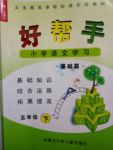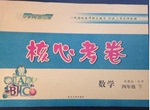阅读理解。
When we talk about intelligence, we do not mean the ability to get a good score on a certain kind of test,
or even the ability to do well in school. These are at best only indicators of something larger, deeper, and far
more important. By intelligence we mean a style of life, a way of behaving in various situations. The true test
of intelligence is not how much we know to do, but how we behave when we don't know what to do.
The intelligent person, young or old, meeting a new situation or problem, opens himself up to it. He tries
to take in with mind and senses everything he can about it. He thinks about it,instead of about himself or what
it might cause to happen to him. He grapples (努力克服) with it boldly, imaginatively, resourcefully (善于应
变地), and if not confidently, at least hopefully; if he fails to master it, he looks without fear or shame at his
mistakes and learns what he can from them. This is intelligence. Clearly its roots lie in a certain feeling about
life, and one's self with respect to life. Just as clearly, unintelligence is not what most psychologists seem to
suppose, the same thing as intelligence, only less of it. It is an entirely different set of attitudes.
Years of watching and comparing bright children with the not-bright, or less bright, have shown that they
are very different kinds of people. The bright child is curious about life and reality, eager to get in touch with
it, embrace (捉住机会) it, unite himself with it. There is no wall, no barrier, between himself and life. On the
other hand, the dull child is far less curious, far less interested in what goes on and what is real, more inclined
(倾向于) to live in a world of fantasy. The bright child likes to experiment, to try things out. He lives by the
maxim (格言) that there is more than one way to skin a cat. If he can't do something one way, he'll try another.
The dull child is usually afraid to try at all. It takes a great deal of urging to get him to try even once; if that try
fails, he is through.
Nobody starts off stupid. Hardly an adult in a thousand,or ten thousand,could in any three years of his life
learn as much. Grow as much in his understanding of the world around him,as every infant(婴儿)learns and
grows in his first three years. But what happens,as we grow older,to this extraordinary capacity for learning
and intellectual growth?What happens is that it is destroyed,and more than by any other one thing, it is
destroyed by the process that we misname education-a process that goes on in most homes and schools.
1. Which of the following is TRUE about an unintelligent child?
A. He/She rarely daydreams.
B. He/She takes the initiative (主动权).
C. He/She gives up easily.
D. He/She isn't afraid of failing.
2. The writer believes that "unintelligence" is _____.
A. similar to intelligence
B. less than intelligence
C. the common believes of most psychologists
D. a particular way of looking at the world
3. Why does the writer say that education is misnamed?
A. Because it takes place more in homes than in schools.
B. Because it discourages intellectual growth.
C. Because it helps dull children with their problems.
D. Because it helps children understand the world around them.
4. "There is more than one way to skin a cat". Which of the following maxim has a similar meaning to this one?
A. If at first you don't succeed, try, try, and try again.
B. All work and no play make Johnny a dull boy.
C. Make new friends and keep the old; one is silver and the other is gold.
D. Make hay while the sun shines.
5. "It is an entirely different set of attitudes." "It" in this sentence refers to _____.
A. intelligence
B. behavior
C. life
D. unintelligence

 小学学习好帮手系列答案
小学学习好帮手系列答案 小学同步三练核心密卷系列答案
小学同步三练核心密卷系列答案